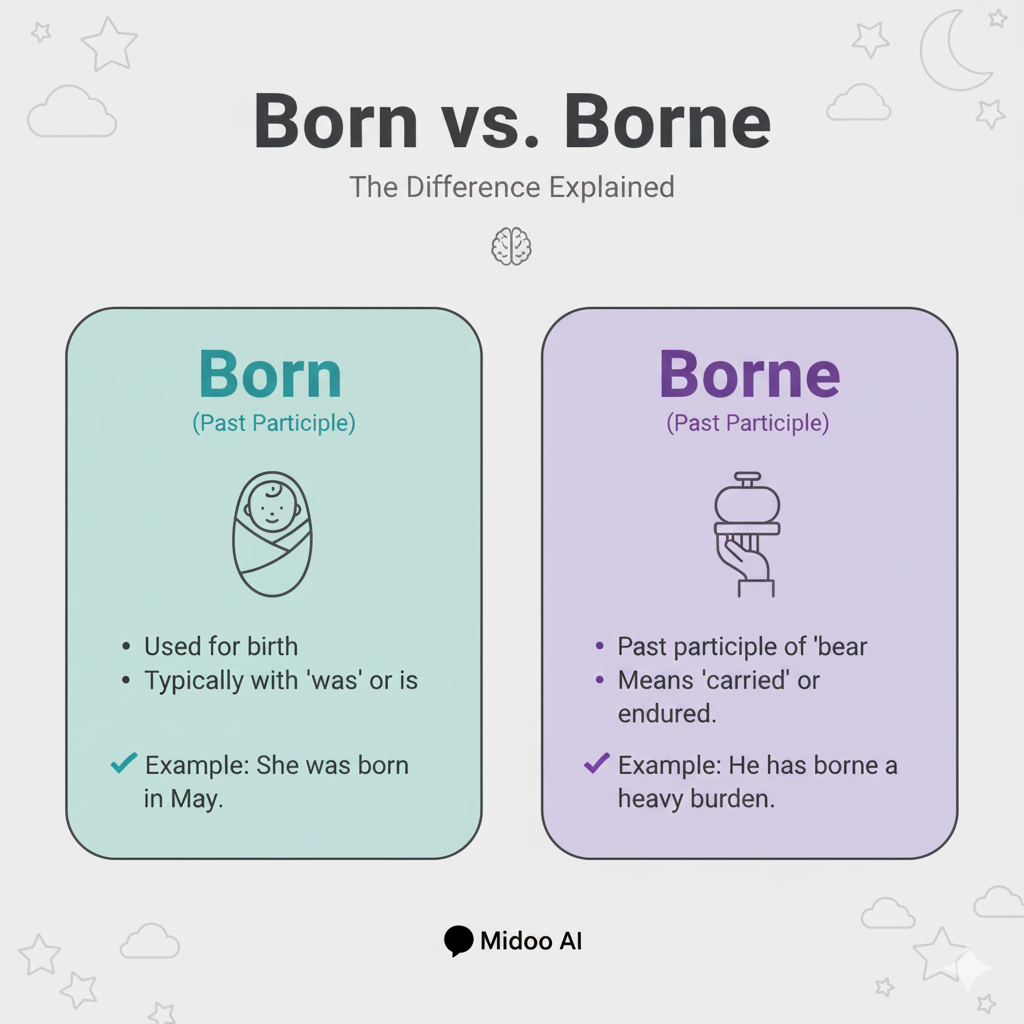Born vs. Borne—Learn the Difference Easily

When studying English, it’s easy to stumble over words that share the same root but have very different uses. Born and borne are perfect examples. Both come from the verb “to bear”, but their meanings have evolved in separate directions.
Understanding when to use each can feel tricky, but with Midoo AI, you can practice these distinctions in real conversations and exercises, ensuring that you never confuse them again.
What Does “Born” Mean?
The word born is tied to birth, life, or natural qualities. It usually describes where or when someone entered the world, or highlights innate ability.
Examples:
- She was born in London.
- He’s a born musician.
- A legend was born that night.
Tip: If the sentence is about birth, beginnings, or something someone naturally has, the right choice is born.
What Does “Borne” Mean?
The word borne is the past participle of bear. It refers to carrying, enduring, or transmitting something. Unlike born, it’s not about life but about responsibility, weight, or transfer.
Examples:
- The expenses were borne by the company.
- This virus is mosquito-borne.
- She has borne many challenges with grace.
Tip: If the context involves carrying a burden, enduring hardship, or transmission (like in “airborne”), then borne is the right word.
✅ Quick Recap
- Born → beginnings, life, origin.
- Borne → carrying, enduring, transmitting.
With tools like Midoo AI, you can practice real-life examples to master this subtle but important difference.
FAQ
Q1: Can “born” and “borne” ever be used interchangeably?
No. Born refers to life or origin, while borne refers to carrying or enduring. They are not interchangeable.
Q2: Why do “born” and “borne” look so similar?
They both come from the Old English verb beran (“to bear”). Over time, their meanings split into life-related (born) and burden-related (borne).
Q3: Is “borne” still common in modern English?
Yes, though it’s more formal. You’ll often see it in expressions like “airborne”, “waterborne”, or legal/academic writing.
Q4: Can I say “I was borne in New York”?
No. For birth and origin, the only correct form is born. Borne would be incorrect in that context.